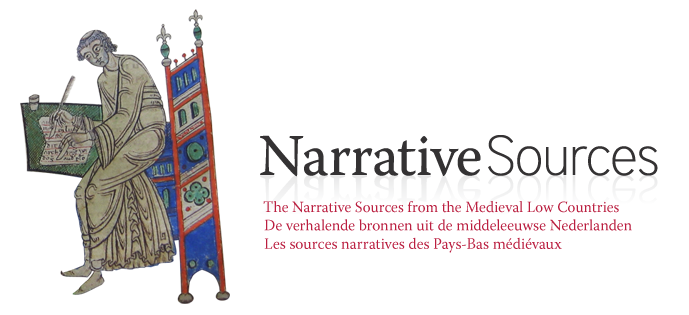The local Time Machine Ghent/Bruges constitutes the aggregate of a number of digitisation projects with a focus on the Flemish cities of Ghent and Bruges from the Middle Ages till today. It can be seen as a compound lab for experiments in which heritage and top tech meet. All projects are either directed at, or developed in collaboration with, researchers at Ghent University. The listed projects and infrastructures are self-contained and independent but they demonstrate the expertise at Ghent University that Time Machine Ghent/Bruges wishes to showcase and build upon.
The Time Machine Ghent/Bruges is meant as a pilot project through which the Ghent University alliance, with its societal partners, contributes vital interdisciplinary research expertise to the European Time Machine project. It aims at laying an important Flemish piece of the puzzle of the European Big Data of the Past. It currently consists of several research initiatives with a focus on historical data and heritage.
Middle Ages
Diplomata Belgica: all diplomatic sources from the medieval Southern Low Countries up to 1250. Over 35.000 charters, including metadata, full text, geo-referencing and images. Freely available in English and French. Developed with the Royal Historical Commission of Belgium. About 10% of the charters contained in the database is immediately related to the early medieval history of the nascent towns of Ghent and Bruges.
 Narrative Sources: repertory of the narrative sources from the medieval Low Countries, including metadata. Currently 2327 texts. Freely available in Dutch and English. About 10% of the sources inventoried in the database is immediately related to the medieval history of Ghent and Bruges.
Narrative Sources: repertory of the narrative sources from the medieval Low Countries, including metadata. Currently 2327 texts. Freely available in Dutch and English. About 10% of the sources inventoried in the database is immediately related to the medieval history of Ghent and Bruges.
- MMMonk: Medieval Monastic Manuscripts – Open – Network – Knowledge aims at providing IIIF-compliant digitisations of the remaining medieval manuscripts (7th – 16th century, 734 in total) of four major Flemish abbeys (Ten Duinen in Koksijde, Ter Doest near Bruges, Saint Bavo and Saint Peter, both in Ghent). MMMonk will offer a virtual reconstruction of the now-scattered medieval libraries of these institutions, with contextual metadata.
- Closer to Van Eyck: online portal to the Verona research project (Van Eyck Research in Open Access) prior to the restoration of the Ghent Altarpiece. Database with the Van Eyck oeuvre (30 paintings/panels), including metadata and macrophotographic images (and X Ray). Developed with the Royal Institute for Cultural Heritage of Belgium and the Bruges City Museums.
- MaGIS Bruges: digitisation of the Marcus Gerards map of Bruges (1562 A.D., 1.7 X 1 m.). Ultra HD scan & Digital Thematic Deconstruction with QuantumGIS (fully searchable). Including touristic route ‘Bruges 1562’ for the Xplore Bruges app.
- ZWIN project: interdisciplinary project (archaeology, geology, history) on the lost harbour system of medieval Bruges. Funded by the Ghent University Special Research Fund. Important digital component, e.g. digitisation of the massive 16th-century map of the Franc of Bruges by Pieter Pourbus (subproject funded by the FWO).
Early Modern Period
- STREAM: Spatiotemporal research infrastructure for Early Modern Flanders and Brabant (statistical data with geo-referencing and semantic annotation). STREAM is designed to protect and facilitate access to a multitude of (socio-economic) historical data for scientific research. Developed with collaboration of the Free University Brussels.
- Ferraris: HD digitisation with online viewer of the map of the Austrian Netherlands and the Prince-Bishopric of Liège made by Jacques de Ferraris between 1770 and 1778 (275 map sheets, 0,90 × 1,40 m). It is the first detailed, systematic and large-scale map in Western Europe. Developed with the National Geographical Institute and the Royal Library of Belgium.
Modern Period
- POPPKAD: digitisation and database of the nineteenth-century cadastral mapping of nearly 1700 cities and towns in Belgium by P.C. Popp. Including the digitised and GIS-transferred cadastral map of Bruges in 1862. POPPKAD is a project of the Quetelet Center.
- Flore de Gand project: digitisation (for Ghent University’s archive and heritage portal) of the tangible and intangible heritage of the botanical garden in Ghent and the city’s broader horticultural scene of the nineteenth and first half of the twentieth century.
Diachronic
- Database of Southern Dutch Dialects: aggregated dataset from three dialect dictionaries (Flanders, Brabant and Limburg), integrated in www.dialectloket.be
- SeArch: database for all archaeological heritage in the North Sea, including geoviewer visualisation and an interactive database with over 250 wrecks in Belgian territorial waters (with metadata and images). Developed with the Flanders Marine Institute
- EURECA project: European Region Enrichment in City Archives and collections. EURECA Investigates the uses of Location Based Services and personalized/contextualized content applications for unlocking and valorising historical heritage collections in cities, e.g. through tourist routing. Includes two test cases, Ghent and Vienna.
